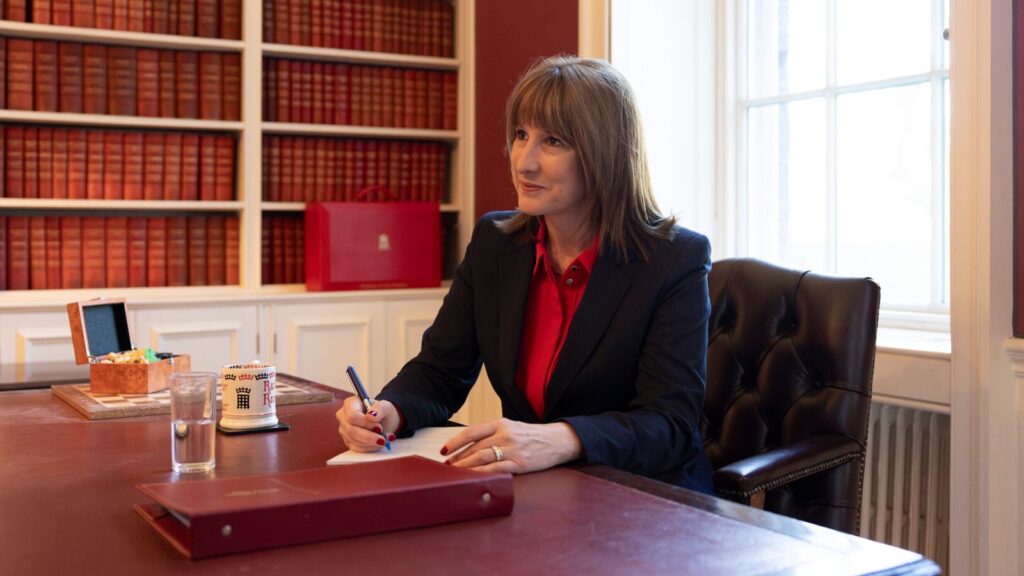CaSE Director Dr Sarah Main gives an update on the proposed anti-lobbying clause in government grants, due to be implemented by 1st May 2016.
Anti-lobbying clause in government grants – update
07 Apr 2016
The anti-lobbying clause came into effect yesterday, 6th April. There is a window for implementation: the clause can be inserted into grants from today and must be inserted into all new and renewed grants from 1st May.
The Cabinet Office announced the new clause on Friday 6th February and issued guidance to the effect that prevents all government grant recipients from using grant funds to lobby government. The guidance says that grant payments cannot be used to ‘support activity intended to influence or attempt to influence Parliament, Government or political parties… or attempting to influence legislative or regulatory action’. This has the potential to impact on the use of publicly-funded research outcomes in government policy-making.
CaSE has been working closely with Jo Johnson’s office, BIS and Cabinet Office since the announcement was first made. Shortly after the announcement, we wrote to Matt Hancock, the Cabinet Office Minister, in conjunction with the Campaign for Social Science to seek clarity on the implementation of the clause for government grants to fund research and set out some concerns. Since then, I have had several conversations with Jo Johnson, BIS and Cabinet Office. There has certainly been a lot of work going on behind the scenes and it is being dealt with as a high priority. The message we’re getting is, ‘it’s difficult, we’re working on it’.
I understand that Jo Johnson intends to issue a statement that will set out the criteria under which this clause should be applied to research before the 1st May. It is widely anticipated that this will form an effective exemption from the clause for government grants that fund research. Of course, his statement can only apply to grants issued by BIS (including Research Council and HEFCE funding). On top of the c.£6bn science budget issued through BIS, the Government spends another £5bn on R&D. This spending is spread across other Government departments, some of the biggest spenders being MoD, DoH, Defra and DfID.
While much of this research is commissioned under contract (and therefore already subject to this clause), there are a number of instances in which grants are awarded for research across government such as PhD programs and regional awards. Therefore, one of my concerns has been to ensure that a solution is devised that works for the science and engineering community and that is consistent for research across all government departments. With Cabinet Office, I have been working towards a pragmatic solution which is to circulate any exemption for research issued by Jo Johnson to all other government departments, in the anticipation that departmental ministers will choose to adopt the same form of words for grants awarded for research from their departments as for BIS.
This much is all pragmatic and part of our work behind the scenes to try to steer a solution that will work for science.
There are, however, many other aspects to this issue that have raised concern, including a number of points of principle which have vexed many in the science community. I have summarised just a few of these below. Please feel free to add your own thoughts in the comments section.
Implementation without parliamentary debate
The clause is implemented under the common law right of Government to control and direct their departments (the ram doctrine) and so does not require parliamentary debate. The Cabinet Office sees this as a ‘housekeeping’ matter of extending a clause that already exists in Government contracts to Government grants.
However, the clause impacts on Parliament and parliamentary process. It prevents grant recipients from influencing Parliament, and indeed the guidance issued with the clause makes clear that it extends to the European Parliament and to foreign parliaments.
Does the Cabinet Office have jurisdiction over interactions with Parliament or foreign parliaments? I personally feel that Parliamentary debate is warranted and necessary due to the potential impact on Parliament and parliamentary process. We are in discussion with Lords and shadow ministerial teams on options to press for debate.
Is there a problem to be solved?
In the announcement of the clause, Matt Hancock cited “extensive research by the Institute of Economic Affairs on so-called ‘sock puppets’, exposing the practice of taxpayers’ money given to pressure groups being diverted to fund lobbying rather than the good causes or public services”. There has been little or no scrutiny of the research conducted or analysis of the scale of the problem as it applies to research. Indeed, in private conversation with me, an official was categorical that there was no problem with research.
Matt Hancock has indicated that he did not have any discussions with the IEA on this, despite citing the research as the driver for change. Cabinet Office have delayed response to PQ31171 tabled by Barry Gardiner MP asking what recent discussions Hancock has had with representatives of science and research and charity organisations on the potential effect of including anti-lobbying clauses in grant agreements. And DECC responded to PQ28292 saying they haven’t assessed whether current grant guidelines on political activity have been breached.
So, as the Lords S&T committee highlighted in their questioning of Jo Johnson and Mark Walport on this issue, and as the Royal Society of Edinburgh highlighted in their open letter to Government, this is rather a sledgehammer to crack a nut. In the spirit of open Government and evidence-informed policy-making, should there not be some scrutiny of the scale of the problem as it applies to research and analysis of the most effective solutions?
Enforceability – what if?
There is a view that this is a ‘storm in a teacup’. Government departments have largely played down the impact the clause will have. For example, Justine Greening in DFID oral questions suggested charities are often aligned with government positions, so sees no problem. DECC responded to Q30388 saying, “the vast majority of climate change research funded by the Department of Energy and Climate Change is not awarded through grant agreements. As a result, we don’t foresee the introduction of an anti-lobbying clause in government grant agreements having any significant impact on research that we fund on these topics in the future”. Further, there are no established mechanisms to assess breaches of the clause: government have admitted they do not collect information on lobbying campaigns (Q from Lords 6227).
So perhaps we should be reassured that the clause will exist but never be applied. That would seem to leave a risk of a future reinterpretation or harsher line on implementation that could be considerably damaging. One can imagine a scenario in which individual scientists or the scientific community as a whole was at odds with Government policy and spoke out to say so. Would the clause then be invoked more stringently?
Scope creep
Many have observed that the most damaging potential of the clause is in much more broadly putting researchers off engaging with policy-making and parliamentary scrutiny in the first place. I have already seen first hand how the uncertainty created by the lack of clarity on the meaning of the clause for research has led people to question if legitimate communications activities should be scrapped.
For example, a research-intensive company asked me if they should scrap promotion of a success story for UK exports because some of the research had been done in collaboration with university academics. There seems to be a great danger that researchers or their funders will just feel that little bit more reticent about engaging in policy-making, Parliamentary scrutiny or with the public, potentially undoing extensive efforts to encourage researchers to do precisely more of this sort of activity over many years.
These are just a few of the issues associated with this clause. Others have pointed to the wider context of regulation and guidance over the last year or two that seems to limit expression of charities and the third sector; the semantics of ‘lobbying’ versus ‘informing’; the impact on evidence-gathering by parliamentary select committees; the impact on the REF; the willingness to collaborate with government grant recipients; the value of dissent in debate and so on.
Advocacy and political engagement activities
- CaSE wrote a joint letter to the Cabinet Office with the Campaign for Social Science setting out the potential consequences of the clause for research and seeking clarification.
- The National Council for Voluntary Organisations wrote a letter to the Prime Minister asking him to retract the clause.
- Early Day Motion 1138 highlights the concerns raised by the third sector and voluntary organisations, notes the clause may have broader impact than originally intended and asks the Government to reconsider its introduction.
- There is a petition in circulation calling for Research Council and Higher Education Funding Council research grants to be exempt from the clause.
- Jo Johnson and Mark Walport gave evidence to the House of Lords Science and Technology Committee about the clause (Tuesday 8th March).
- Nicola Blackwood, Chair of HoC S&T committee, wrote to Business Secretary, Sajid Javid, expressing concerns about the impact of the clause on the operation of select committees.
Media coverage
Blogs and articles in many outlets, including The Guardian, The Observer, The Times and Nature.
Related resources

CaSE analysis of the 2026/27-2029/30 UKRI budget allocations.

CaSE analysis of the Autumn Budget delivered by the Chancellor on 26 November 2025.

Analysis of the newly announced framework for public R&D investment, presented in speeches by Liz Kendall and Prof Sir Ian Chapman.

A summary of two workshops CaSE held with sponsors and stakeholders in Wales and Scotland as part of our work to raise the profile of R&D in Holyrood and the Senedd.